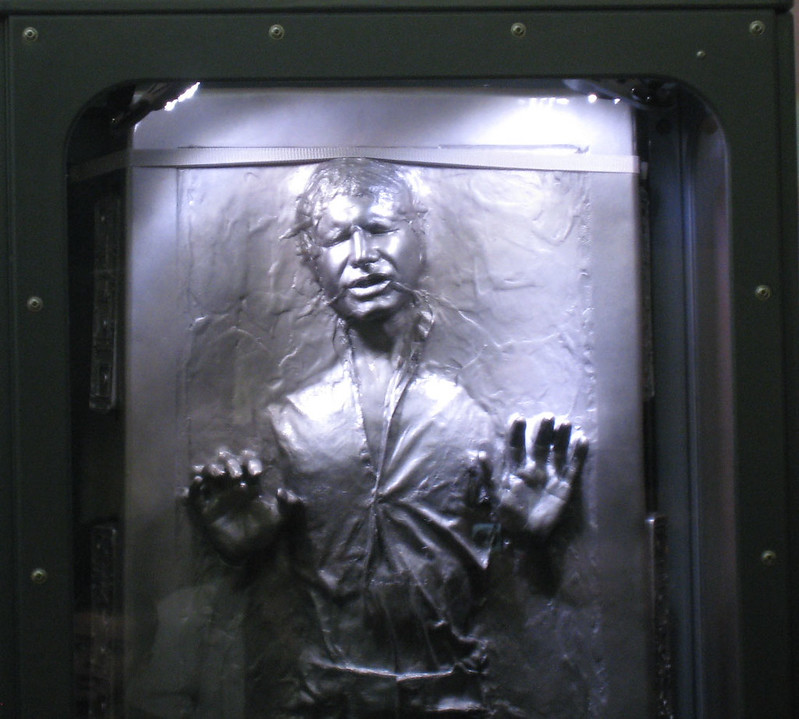Most tech companies — particularly B2B companies — either don’t understand the power of a brand, or do a really poor job of creating one.
An informal survey of a dozen of my young CEO friends showed that, given the choice, 10 out of 12 — 83% — would rather spend an extra dollar on product development than brand-building. It is dangerous (or at least foolish) to assume that the ROI on product development is greater than the ROI on brand building.
As a serial entrepreneur and CEO, I have had to make this choice many times. In 2006, I co-founded PC backup company Carbonite. I left the company five years ago after taking it public and I no longer have any financial interest in it, which is why I can write about it now — it was just sold for $1.4 billion to OpenText. There were many other backup products on the market at that time and many more appeared over the first five years of the company’s life. I would argue that Carbonite was slicker than most of the others, but essentially every backup product accomplishes the same result.
Unlike Carbonite’s competitors, we focused on our brand. That meant raising more money than we would have if we were just investing in R&D. But, after five years of investing in our brand, we had eleven times the brand recognition of any other consumer backup company and we dominated the market.
Here’s why: Nielsen’s 2015 report Understanding the Power of a Brand Name, showed that 59% of people prefer to buy brands that they have heard of. Since none of our competitors had widely recognized brands, we got most of that 59%. Of the remaining 41%, we fought it out on other criteria and won most of that as well. Put yourself in the shoes of a potential customer looking to back up their PC. What do you worry about? Well, before we even launched the company, we asked PC owners to choose the five most important attributes of their ideal backup company from a list of ten possible attributes, and we found the following:
1. Trustworthy: you won’t look at my files or allow anyone to see them (1127 votes)
2. Peace of mind: when I go to retrieve my backup, it will always be there (811 votes)
3. Reliable: it backs up everything and doesn’t stop (696 votes)
4. Helpful: if I lose my computer, I want to talk to a human who can help me (446 votes)
5. Easy: it should be simple and require little attention (444 votes)
The attributes that didn’t make the top five:
6. Fast: backups happen quickly
7. Price: I want a lower price
8. Features: I want a lot of features to let me choose what, when, how
9. Encryption: I want the strongest possible encryption on my files
10. Monitoring: I want detailed monitoring and reporting on my backups
I would have predicted that “reliable” would have been the runaway winner. But what people worried about most was trustworthiness and peace of mind. During our early years, customers would write to me saying, in essence, “Who the heck is Carbonite and why should I trust you with my data?”
So, we decided to build a brand based on trustworthiness and peace of mind. We used trusted spokespersons to pitch Carbonite, thereby gaining the trust of their followers, and we motivated people to think about backup by saying, “Think how you’d feel if you woke up tomorrow and everything on your computer was gone.” We sold peace of mind, not backup. It worked, and Carbonite took off like a rocket.

Photo: swimfinfan/Flickr
What other factors contributed to our brand?
Well, first, our name: Carbonite. You’ll remember Han Solo was encased in Carbonite in “The Empire Strikes Back.” This incredibly hard “carbon freezing” could preserve things (like Han Solo) indefinitely. We picked up this strong carbon-black color in our logo and combined it with the little green dot that our software put next to each successfully backed up file. The carbonite black plus the “peace of mind” green dot defined our brand. According to colormatters.com, a “signature color” boosts brand recognition by 80%.

What else is there about the brand? First off, if you heard somebody speak it, you could spell it. In a test we ran, 98% of the people to whom we said the word “carbonite,” spelled it correctly. I have informally run this same test on some fairly well-known tech brands where the success rate is lower than 20%! It’s hard to believe that anyone would give their company a name that nobody can spell, but it happens.
Secondly, the name “Carbonite” will ring a bell even if you never actually heard of Carbonite, the backup company. When asked, “have you ever heard of the company Carbonite?” 61% said yes. “Do you know what the company Carbonite does?” Only 21% got it right. So, our brand had name recognition; even if people had never actually heard of Carbonite the company, they thought they had! If a consumer was choosing between Carbonite and Brand X backup, they usually chose Carbonite because they thought they had heard of it.
Studies have shown that it takes just ten seconds for people to form an impression of your brand. What do you do, and what do you stand for? When I was teaching business school, the first thing I had my students do was to write a billboard for their startups. I’m not talking about an elevator pitch – that’s way more than ten seconds. I mean, show me the billboard! Maybe I’ll have ten seconds to see it before I drive by. Can you get me to resonate with your brand in less than ten seconds? It’s very hard, but it may be the most important thing you’ll ever do for your business.
At Carbonite, all our ads started with billboards, even if they were only on our whiteboard. At my new company, people ask, “how did you come up with the name ‘Wasabi?’” I tell them the same thing:
- when you hear it, you can spell it;
- it seems familiar even if you’ve never actually encountered the company;
- it’s a hot condiment, and we sell hot storage. Like Carbonite, it’s another great name.
If you want to sell a lot of products, a good product is table stakes. The real challenge is to get customers to resonate with your message. Don’t sell yourself short.
